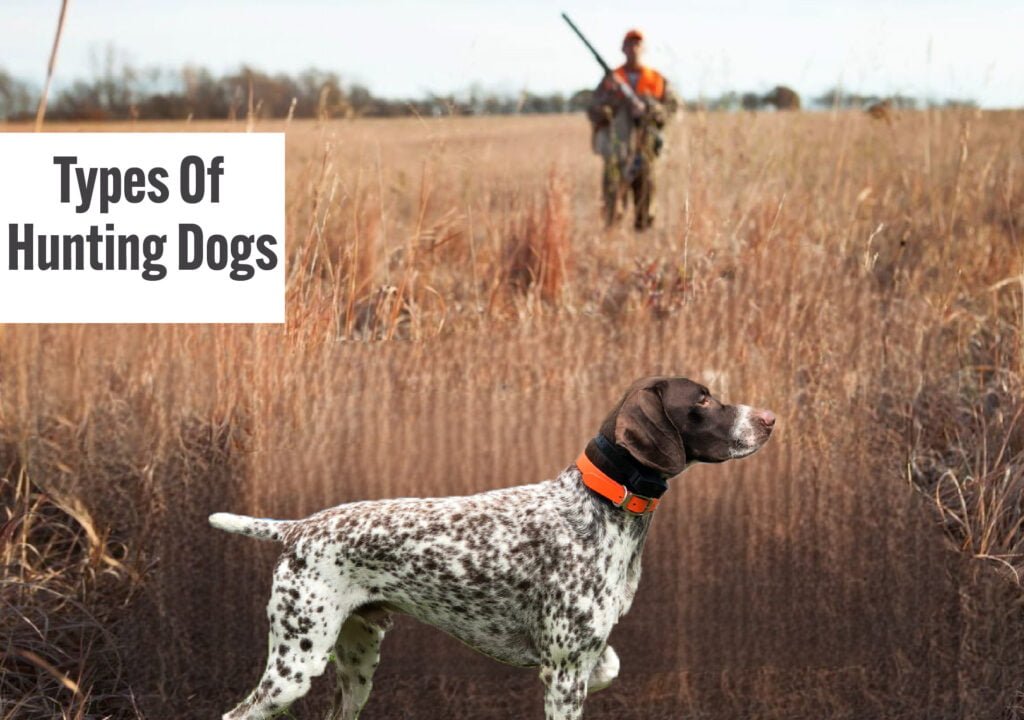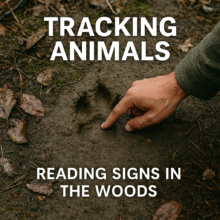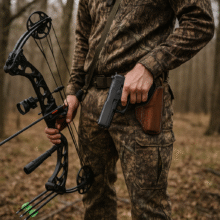Types of Hunting Dogs: An In-Depth Look into the Breeds and their Hunting Prowess

Table of Contents
Table of contents
Introduction
Hunting dogs have long been the perfect partners in hunting, assisting humans by tracking and retrieving game. With an excellent sense of smell, sight, and hearing, these dogs bring a level of expertise to hunting that’s unmatched. Each breed has specific traits that make them ideal for different hunting situations. This article aims to give you a detailed understanding of each breed’s strengths and abilities, which can assist you in selecting the ideal hunting dog for your expeditions.
Gun Dogs
Gun dogs, also known as bird dogs, are bred to locate and retrieve game, mainly birds. They are well-known for their soft mouths and ability to find and return game undamaged. Usually, hunters divide gun dogs into retrievers, pointers, setters, and spaniels, with each breed bringing unique skills to the field.
Retrievers
Retrievers, such as the Labrador Retriever and Golden Retriever, have a renowned keen sense of smell and a soft mouth. Breeders developed them to retrieve game, particularly waterfowl, and they excel as swimmers. These dogs have an innate love for water and are undeterred by harsh weather conditions. They’re also versatile, able to retrieve game on land and in water, making them a favored breed among bird hunters.
Pointers
Pointer breeds, such as the English Pointer and German Shorthaired Pointer, have an instinctive point behavior. They search for game using their keen sense of smell, and upon finding it, they will stand still and direct their muzzle towards the game, signalling the hunter. These dogs are known for their agility and endurance, able to cover large areas of ground quickly.
Setters
Breeds like the English Setter and Irish Setter are known for their unique ‘setting’ behavior. Upon locating game, they will crouch down or ‘set’, allowing hunters to cast their nets or approach with caution. Setters excel at finding and pointing at upland birds, and hunters value them for their elegance and style in the field.
Spaniels
Spaniels, including the English Springer Spaniel and American Cocker Spaniel, are skilled at flushing game from its hiding spot. Once the game is in flight, the hunter can take their shot, and the Spaniel will retrieve the downed game. Their compact size allows them to navigate thick bushes and undergrowth with ease.
Hounds
Hounds, divided into sighthounds and scent hounds, exhibit endurance, speed, and keen senses. They are generally used to hunt larger game and can pursue over great distances.
Sighthounds
Sighthounds, or gazehounds, such as the Greyhound and Saluki, are characterized by their exceptional sight and speed. They are primarily visual hunters, specializing in pursuing game in open areas at high speeds. These dogs have a lean, agile build that allows them to swiftly chase and capture their prey.
Scent Hounds
Scent hounds, including the Bloodhound and Beagle, possess an extraordinary sense of smell, among the best in the canine world. These dogs can follow a trail over great distances, even when the scent is old. They’re known for their booming barks, using them to signal the hunter when the game is found or to keep it cornered.
Terriers
Hunters traditionally use terriers, like the Jack Russell Terrier and Border Terrier, for hunting vermin and small game. These dogs are small, agile, and known for their tenacity and determination. Breeders develop them to hunt above and below ground, chasing after game into their dens.
Versatile Hunting Dogs
Breeds like the Weimaraner and Vizsla are renowned for their versatility in hunting. These dogs can track, point, and retrieve on land and in water, making them a valuable addition to any hunting party.
Choosing the Right Hunting Dog
The type of hunting you plan to do, your lifestyle, and personal preferences play a vital role in choosing the right hunting dog. For example, if you’re into bird hunting near water bodies, a retriever would be a better choice than a terrier. Conversely, if you’re hunting small game in rough terrains, a terrier’s tenacity and agility would be beneficial.
Training Your Hunting Dog
Training a hunting dog requires patience, consistency, and a deep understanding of the dog’s natural instincts and abilities. Obedience training should be the foundation, and gradually, you can introduce the dog to the environment and the specific tasks they will be doing during the hunt. You need to train various kind of training for each types of hunting dogs.
Understanding Hunting Breeds and Game
Each type of hunting dog brings something unique to the field. Spaniels, with their ability to flush out game, are excellent for hunts involving birds in dense cover. Pointers and setters, with their ability to locate and point at game, are ideal for upland bird hunting. Hounds, with their exceptional sense of smell or sight, are great for larger game.
Caring for Your Hunting Dog
A hunting dog requires regular exercise and mental stimulation. You should ensure their diet is balanced and suited to their activity level. Regular health checks are also essential to ensure they are in top form for the hunting season. Each type of hunting dog needs to be cared in different ways.
Frequently Asked Questions:
1. How do I start training my hunting dog?
Start with obedience training. Your dog needs to understand basic commands before introducing field commands. Gradually introduce your dog to the environment and game they’ll be hunting. Consistency is key in training a hunting dog.
2. Can hunting dogs be good pets?
Absolutely. Many hunting dogs make excellent pets. They are usually very loyal, trainable, and get along well with people. However, keep in mind that hunting breeds are often high-energy dogs that require regular exercise.
3. What is the easiest hunting dog to train?
Labradors and Golden Retrievers are often considered among the easiest breeds to train among retrievers. They are very intelligent, eager to please, and highly trainable.
4. Do hunting dogs need a special diet?
Hunting dogs often require a high-protein diet to sustain their energy levels. Always consult with a vet to make sure you are providing a balanced diet for your specific breed and hunting style.
5. Can all dog breeds be trained to hunt?
While all dogs have an innate predatory instinct, not all breeds are suitable for hunting. Some dogs may lack the physical capabilities or the temperament necessary for hunting.
Conclusion
In conclusion, the world of hunting dogs is as diverse as the game they help hunt. By understanding these breeds and their unique abilities, you can find a hunting dog that fits your specific hunting style and needs.







